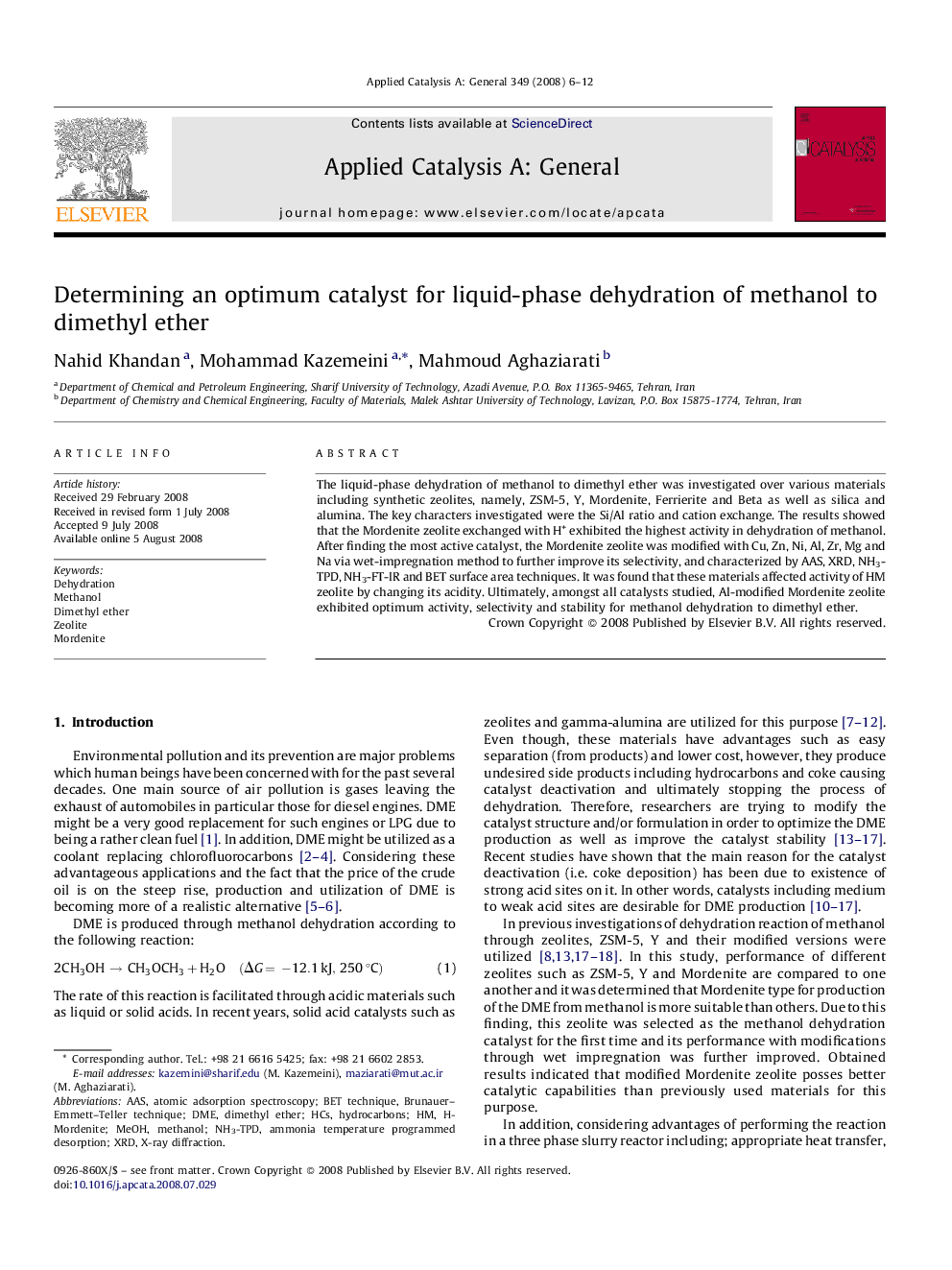| Article ID | Journal | Published Year | Pages | File Type |
|---|---|---|---|---|
| 42798 | Applied Catalysis A: General | 2008 | 7 Pages |
The liquid-phase dehydration of methanol to dimethyl ether was investigated over various materials including synthetic zeolites, namely, ZSM-5, Y, Mordenite, Ferrierite and Beta as well as silica and alumina. The key characters investigated were the Si/Al ratio and cation exchange. The results showed that the Mordenite zeolite exchanged with H+ exhibited the highest activity in dehydration of methanol. After finding the most active catalyst, the Mordenite zeolite was modified with Cu, Zn, Ni, Al, Zr, Mg and Na via wet-impregnation method to further improve its selectivity, and characterized by AAS, XRD, NH3-TPD, NH3-FT-IR and BET surface area techniques. It was found that these materials affected activity of HM zeolite by changing its acidity. Ultimately, amongst all catalysts studied, Al-modified Mordenite zeolite exhibited optimum activity, selectivity and stability for methanol dehydration to dimethyl ether.
Graphical abstractThe liquid-phase dehydration of methanol to dimethyl ether was investigated. The results showed that the Mordenite zeolite exchanged with H+ exhibited the highest activity in dehydration of methanol. Ultimately, amongst all catalysts studied, Al-modified Mordenite zeolite exhibited optimum activity, selectivity and stability for methanol dehydration to dimethyl ether. Figure optionsDownload full-size imageDownload as PowerPoint slide
